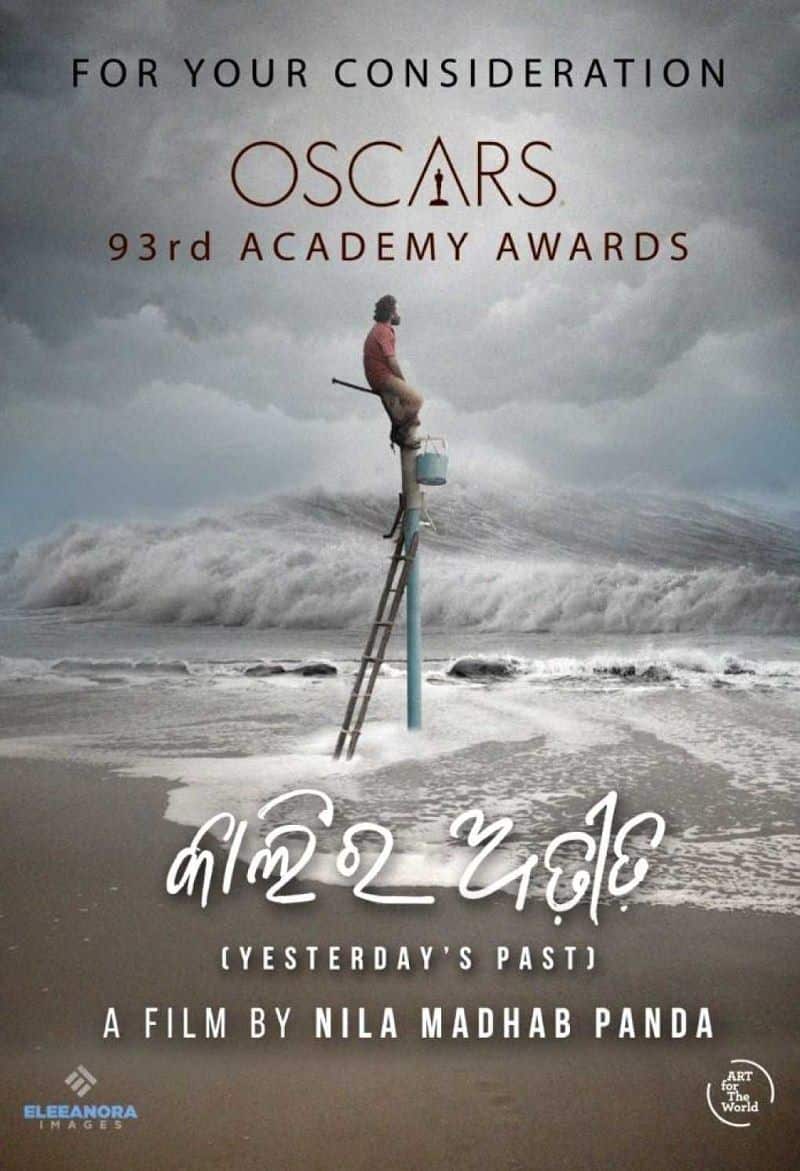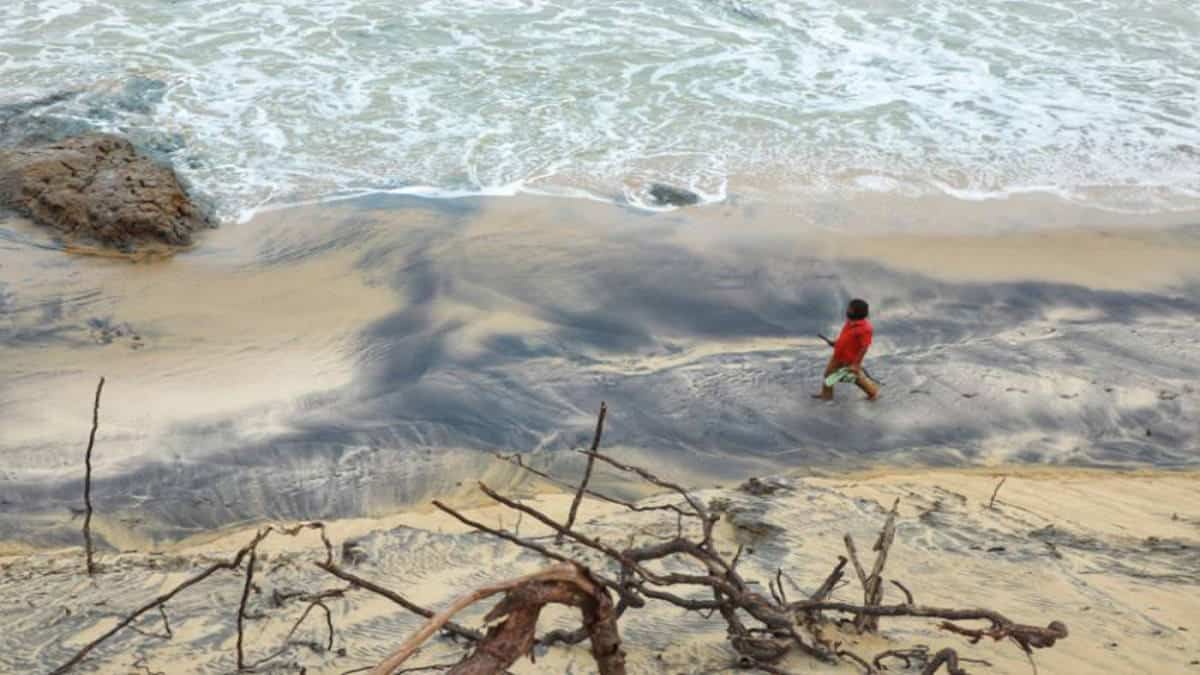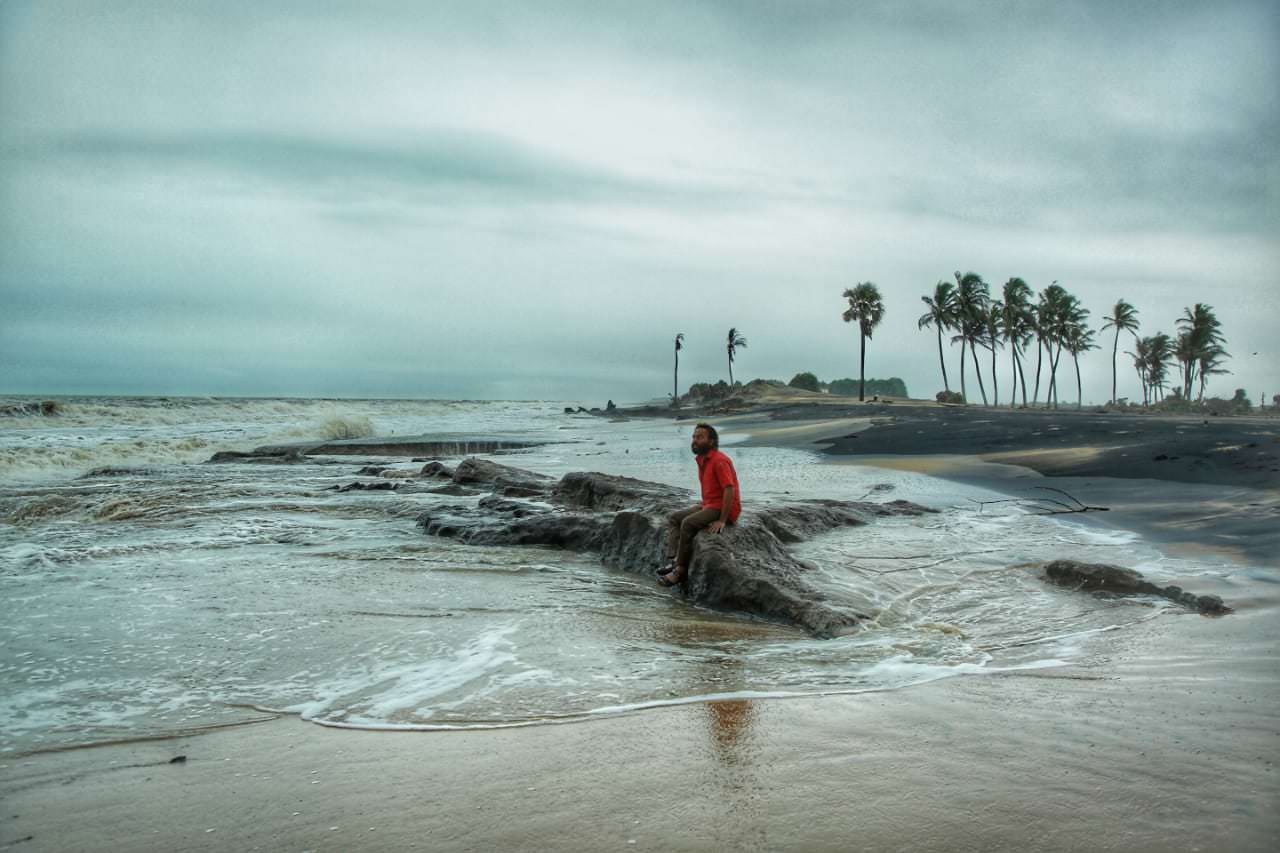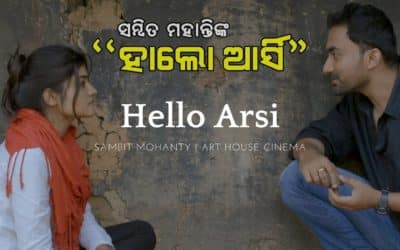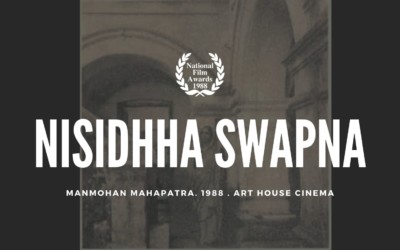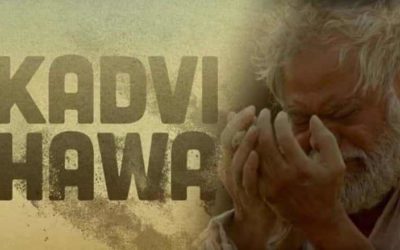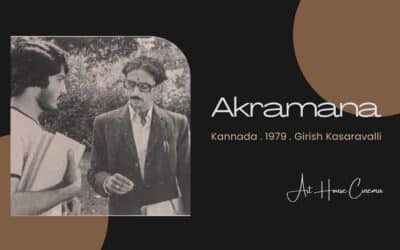Kalira Atita [Eng: Yesterday’s Past] is a 2019 Odia film by noted filmmaker, Nila Madhab Panda. The film is based on real events, set in Satavaya, a cluster of seven villages on India’s east coast that are swallowed up by the rising sea as a result of climate change; as seen from the eyes of Gunu, a disillusioned young man traveling aimlessly.
Kalira Atita was featured in the Panorama section at the 51st International Film Festival of India (IFFI) in 2021 and was the recipient of the National Film Award (2021) for the best Odia film.
Cast
- Pitobash Tripathy – Gunu
- Basant Sahu
- Sonali Sharmistha Mohanty
- Golak Kumar Sethi
- Gargie Mohanty
- Susanta Das Mohapatra
Crew
- Direction – Nila Madhab Panda
- Story – Nila Madhab Panda
- Screenplay – Nila Madhab Panda, Nitin Dixit
- Editing – Arjun Guarasaria, Sangram Kishore Lenka, Paramita Ghosh
- Cinematography – Nagaraj Diwakar
- Music – Daniel B. George, Hopun Saikia
Story
Gunu is schizophrenic, running against the tide. His red shirt is a red flag, as he walks to his death. As the village (Bagapatia) is being evacuated, Gunu is running in the opposite direction, towards the ocean, his washed-away home in the Satabhaya village, engulfed by the sea, to reunite with his dead family. In his bag, there are new clothes and toys. The loafer Gunu had left the village to return one day to show he’s not entirely useless. Here’s a man who’s lost everything, his world, his loved ones, even his sanity. His inner turmoil is reflected by the overcast, rumbling skies and a raging sea. A sole handpump that used to be in the village center is now in the middle of the ocean.
He is parched, he climbs and holds onto it with his dear life, but there’s water-water everywhere, not a drop to drink. Man’s a creature, he will forage and survive. But how does he accept his homelessness when his closest ones are taken away? The arresting handheld shots, of a man scuffling his way against nature’s odds, is a journey into the inner recesses of his mind, his present pathos, and yesterday’s memories and emotions, the more they pull him into his past the more they propel him on to his future.
Commentary
Kalira Atita stars Pitobash Tripathy as Gunu, an unhinged man who returns to his coastal Odisha village days before the landfall of yet another cyclone. While the entire region is being evacuated, with panicked residents heading towards higher ground and rehabilitation centers, a lone Gunu makes his way towards the ocean. The film slowly reveals – through his hallucinatory state and flashbacks – that Gunu is driven by the numbing grief of losing his young family to a previous cyclone.
His village is long flattened, but the guilt of abandoning them has cost him his sanity. He rages and rages against the dying of the light. In an early scene, his sister – on her way out from the village – is heartbroken to see Gunu’s oblivion. She knows he is far gone, and she knows she can do nothing to stop him. It is like she is living through the death of a loved one even while he is alive. The premise is fundamentally moving. The idea of a person seeking salvation for his sins is elevated by a story that organically allows for a visual journey. But you can sense the director getting carried away with the cinematic fertility.
Pitobash performs at a dramatic Tom-Hanks-in-Cast-Away pitch. His inanimate companion here is not volleyball but a radio transistor – a device to keep the audience informed about the inevitable storm. His body-acting is committed, with Gunu looking more and more deluded with every passing hour. It is a single-character film; the camera stays on him as he makes his way through streams, parched riverbeds, forests, and the wilderness caused by rising sea levels. All the while, his memories intermesh with the starkness of his reality.
Pitobash’s face evokes the notion of “madness” in a very distinct manner. It never really feels he is on a suicide mission; in his head, this is a long-awaited reunion and reckoning.
In the process, Kalira Atita straddles the ambiguity of identity while staying faithful to the aesthetics of environmental storytelling. It is a welcome diversion for Nila Madhab Panda, a director often torn between the nobility of intent and depth of content. Kalira Atita is a conscious shedding of baggage for both the filmmaker and his central character. The winds of social change are heavy, but both of them are thriving in the calm before the storm.
Director’s Note
Nila Madhab Panda, the acclaimed director who had won many awards including the National Film Awards, for making films based on socially relevant subjects.
Panda explained that the 83 -minute movie brings to light the traumatizing emotion of one man who lives in yesterday’s past after his village was enveloped by the sea. “People usually look only at the economic and physical impact of climate change. But the protagonist in my film is a victim of the oft-overlooked yet most important emotional impact of climate change. It turns out that the sea engulfs his village, after which he comes to think that his family and his village have gone to the sea. He starts believing that there awaits a better world for him. My film focuses more on the emotion of that man. Kalira Atita means yesterday’s past; my protagonist is literally living in yesterday’s past.”
How did the idea for the film originate? Thanks to a striking and fearful news report on a hand pump in seawater. “Once in the year 2006, I saw a news report where I saw a 10-feet hand pump in seawater. Usually, we see them inside villages. But there was no village in that picture, only the remnants of one, which was scary. I tried to collect more information on that. At that time, no one was ready to believe that it was due to sea-level rise. But eventually, I started studying the area in Coastal Odisha and found that out of seven villages, four were already consumed by the sea and the rest three were already under threat. It turned out that in the next thirteen years, the remaining three villages too were engulfed by the sea.”
As fortune would have it, Panda had won a fellowship in 2006 from the UK High Commission of United Kingdom and Discovery Channel to make an environmental film; he took the opportunity and decided to make this a project for his fellowship.
On being asked the reason for his abiding inspiration for making films on the environment, Panda says: “As humans, when we progress, we do not realize what impact we are leaving on the world. Because of us, many innocent lives suffer. The protagonist in my film is such an innocent victim.”
When asked about the use of shock factors like the depiction of doomsday to portray the impact of climate change, Panda said in half jest: “Shock factor is needed especially when dealing with serious subjects like climate change. Only then will people realize the consequences. Climate change is a reality and it’s high time we get conscious and act upon it”.
Awards & Recognition
- 67th National Film Awards (2020) – Best Odia Film
- 31st Odisha State Film Awards (2020) –
- Best Film – Mohan Sundar Goswami Award
- Best Director – Nila Madhab Panda
- Best Art Director – Kalinga Keshari Nayak
- 51st Indian International Film Festival (IIFF) – Panorama Selection
Reference
- IMDB – Kalira Atita
- Cornell Cinema – Kalira Atita (Yesterday’s Past)
- MX Player – Kalira Atita Online Viewing


